Last Updated on January 13, 2025
Expert Boiler Installation in UK
Installing a new boiler is a surefire way to make your home or business more energy-efficient. Not only is an energy-efficient boiler a worthwhile investment but you’ll cut back on energy bills when upgrading to a newer model.
However, choosing the right boiler suited to your property’s size and heating demands is vital. Additionally, only certified professionals can legally perform boiler installations. The advantage of this includes avoiding safety risks, wasted energy, voided warranties and potential penalties.
But how do you know which boiler to opt for and which reliable installer to trust?
Don’t fret, you can rely on Eco Happy – whether you live in England, Scotland, Wales or Northern Ireland. Our expert team has helped thousands of home- and business owners, like yourself, to expertly install boilers and slash energy bills.
For fast, affordable service and peace of mind, chat with the Eco Happy team today for your replacement boiler or new boiler installation needs.
Your quote is almost
in your inbox
Just a few more details are needed.
What Type Of Boiler Do You Need?
The type of boiler installation you need depends on several factors, such as:
- House/commercial property size
- Property insulation
- Water pressure in your area
- Gas grid connections
- How many people live/work in the building
- Hot water demand
- Lifestyle routines
- Environmental preferences
- Budget
Let’s explore the various boiler types and their suitability in different scenarios.
Conventional boilers
Conventional boilers – also called regular, traditional or heat-only boilers – are the largest boiler systems as they require both a hot water cylinder and cold water storage tank. They are considered “old boilers” but still heat most (older) UK homes. Unfortunately, conventional boilers are less energy efficient than the other boilers on our list.
Features
- Regular boilers need a fair amount of space due to the hot water cylinder and cold water storage tank.
- Ideal for large properties (2+ bathrooms) with high hot water demands.
- Great for areas with low water pressure (below 1 bar).
- Can supply water to multiple outlets without compromising water pressure.
- Work well with traditional radiator heating systems.
- Generally run on natural gas, oil or Liquefied Petroleum Gas (LPG).
Note: As part of the UK Government’s 2050 Net Zero plan, traditional oil and gas boilers are being phased out due to their high carbon footprint. These boilers may no longer be available for new-build installations from as early as 2025, with the scheme taking full effect by 2035.
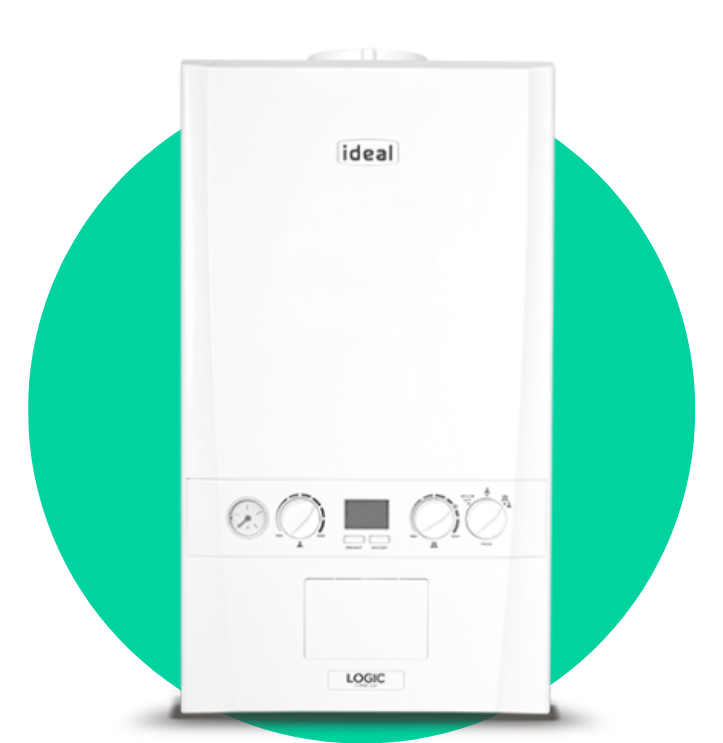
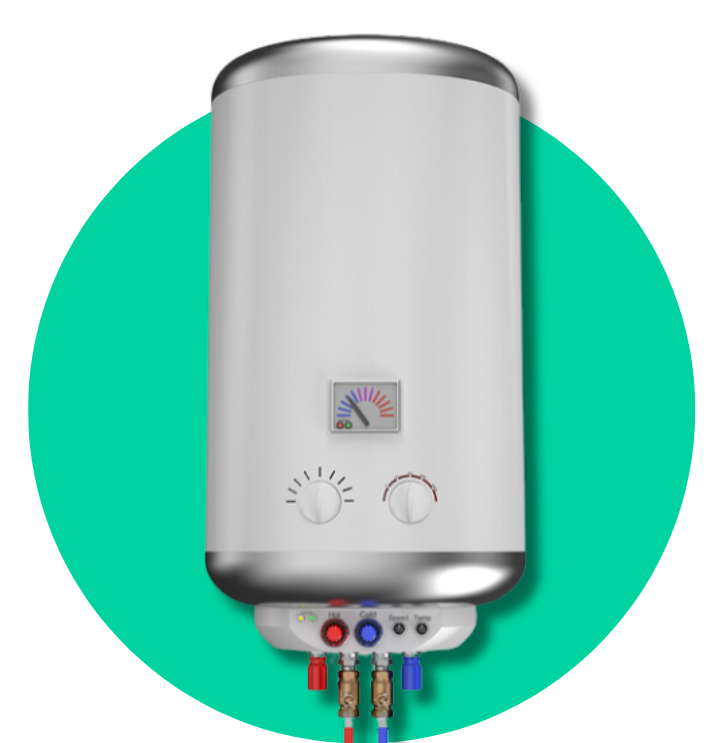
System boilers
System boilers are a “hybrid” between a regular and a combi boiler. It requires a hot water cylinder but doesn’t need a separate cold water tank. System boilers are closed systems, meaning they also draw water directly from the mains supply.
Features
- Can store hot water for later use (in the cylinder).
- Ideal for 3-bedroom homes or medium-sized offices.
- Can supply hot water to multiple outlets simultaneously.
- Various fuel options are available: gas, oil, electric or LPG.
- Compatible with green energy (e.g. solar panels).
- Your hot water supply is dependent on the size of the cylinder.
Combi boilers
A combination boiler is an energy-efficient boiler and central heating system in one compact unit. They are the most space-savvy models on the market and draw water directly from the mains line. Around 80% of UK homes have a combi boiler installed.
Features
- Combi boilers do not require much space as there is no need for a storage cold water tank.
- They’re ideal for 3-bedroom homes or small offices with moderate hot water demand.
- Provides instant hot water (since connected directly to the mains water pipe).
- Generally cheaper to install due to fewer components and connections.
- Very efficient boilers (if compatible with your hot water demand).
- Combis run on gas, oil, LPG or electricity.
Note: A combi boiler is not recommended if you live in a low-water-pressure area or have multiple bathrooms, as the water pressure takes a dip when supplying multiple outlets.
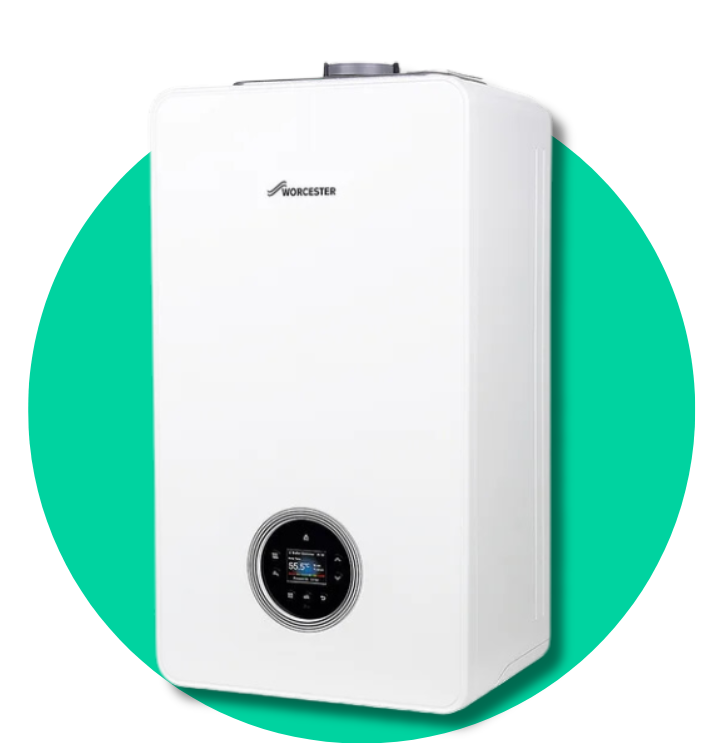
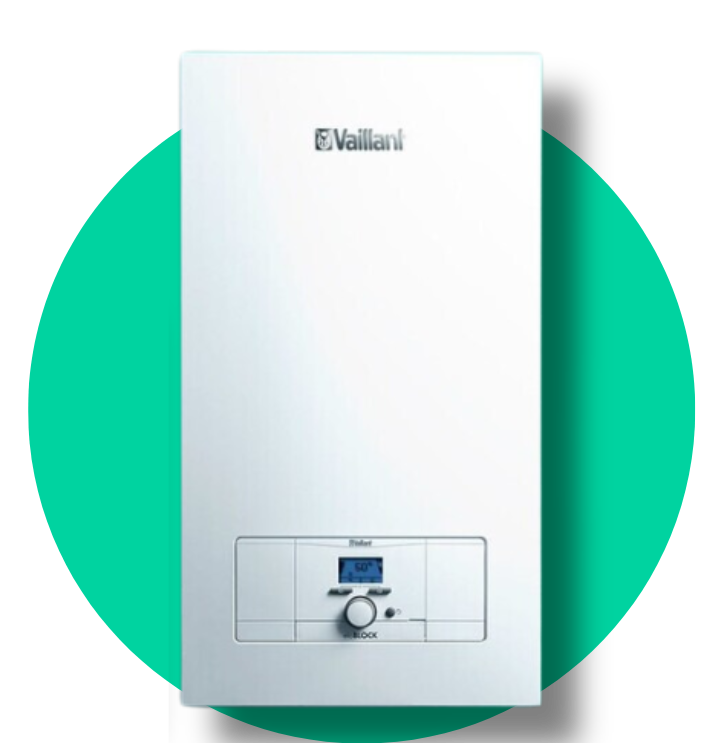
Electric boilers
Electric boilers use electricity to heat water for central heating and hot water systems. They are a clean and efficient alternative to traditional gas or oil boilers, especially when connected to renewable energy sources like solar.
Features
- Eco-friendly, producing close to zero carbon emissions.
- Around 98% efficient.
- Perfect for homes or businesses without a gas connection.
- Quiet operation compared to oil and gas boilers.
- Electric boilers have fewer components and, therefore, experience fewer breakdowns and malfunctions.
- Running costs may be higher due to the current price of electricity.
Biomass boilers
Biomass boilers burn organic material, like wood pellets or logs, to generate heating and hot water. Biomass fuel is derived from organic matter which can be replenished, making it a renewable energy source.
Features
- Releases fewer carbon emissions.
- Reduces your reliance on the national grid (i.e. fuel independence).
- Perfect for larger homes/businesses with high hot water demands.
- Great for rural areas with access to sustainable biomass fuel.
- Generally requires a large amount of space, for the unit as well as storing biomass fuel.
- Upfront boiler installation costs are higher in comparison to other boiler types but can be offset with government grants.
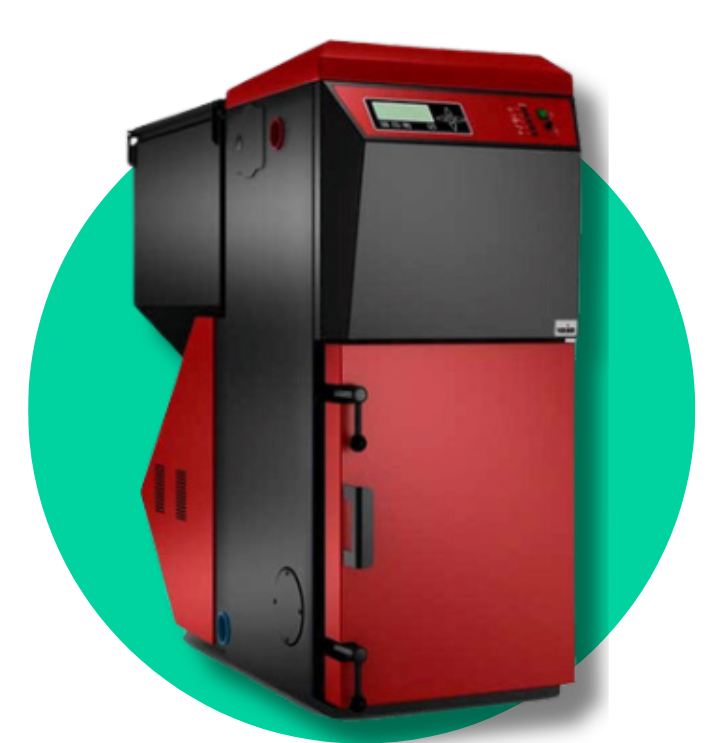
How Much Does It Cost To Install A New Boiler In The UK?
The cost to have a boiler installed at your home or business premises in the UK ranges between £500 and £14,000. However, this depends on several factors, such as:
- Where you are located (England, Scotland, Wales, Northern Ireland)
- The type of boiler you choose (e.g. system, combi, biomass, etc.)
- Fuel type (e.g. electricity, gas, biomass).
- The size of the boiler (30 kW, 40 kW, etc).
- How complex the installation process is.
Whether you’re doing a boiler replacement in your 1-bed bungalow or installing a brand new boiler in your office, we’ve compiled a list of each boiler installation cost for you. Please note that these are estimated costs.
New boiler costs for residential homes
1 – 2 bedroom home
| Type of boiler | Cost (excluding installation) | Cost (including Installation) | Average cost (with installation) |
|---|---|---|---|
| Conventional | £600 – £3,500 | £1,600 – £5,000 | £2,800 |
| Combi | £500 – £1,200 | £1,000 – £2,200 | £1,700 |
| System | £1,750 – £2,500 | £2,750 – £3,500 | £3,500 |
| Electric | £590 – £2,500 | £1,590 – £4,000 | £3,300 |
| Biomass | £4,000 – £12,000 | £6,000 – £12,000 | £13,500 |
3 – 4 bedroom home
| Type of boiler | Cost (excluding installation) | Cost (including Installation) | Average cost (with installation) |
|---|---|---|---|
| Conventional | £600 – £2,500 | £1,700 – £4,700 | £3,100 |
| Combi | £500 – £3,000 | £1,500 – £4,500 | £2,700 |
| System | £580 – £3,500 | £1,600 – £4,500 | £3,500 |
| Electric | £590 – £3,000 | £1,590 – £3,500 | £2,800 |
| Biomass | £5,000 – £7,000 | £10,000 – £19,000 | £14,500 |
5+ bedroom home
| Type of boiler | Cost (excluding installation) | Cost (including Installation) | Average cost (with installation) |
|---|---|---|---|
| Conventional | £1,400 – £4,400 | £2,400 – £5,500 | £3,800 |
| Combi | £1,200 – £5,000 | £2,200 – £6,500 | £4,350 |
| System | £1,580 – £4,500 | £2,600 – £6,000 | £4,200 |
| Electric | £1,590 – £5,000 | £3,000 – £6,500 | £4,700 |
| Biomass | £10,000 – £20,000 | £17,000 – £27,000 | £25,500 |
New boiler costs for commercial businesses
The estimated costs below are for small, medium and large businesses.
Small businesses
| Type of boiler | Cost (excluding installation) | Cost (including Installation) | Average cost (with installation) |
|---|---|---|---|
| Conventional | £600 – £2,700 | £1,800 – £4,000 | £2,900 |
| Combi | £600 – £2,000 | £1,900 – £3,300 | £2,600 |
| System | £600 – £2,900 | £600 – £3,500 | £2,050 |
| Electric | £550 – £1,750 | £1,900 – £3,000 | £2,450 |
| Biomass | £5,000 – £10,000 | £10,000 – £16,000 | £13,000 |
Medium businesses
| Type of boiler | Cost (excluding installation) | Cost (including Installation) | Average cost (with installation) |
|---|---|---|---|
| Conventional | £1,200 – £5,000 | £3,200 – £7,000 | £5,100 |
| Combi | £1,000 – £4,000 | £3,000 – £6,000 | £4,500 |
| System | £1,200 – £5,000 | £3,300 – £7,000 | £5,150 |
| Electric | £1,200 – £4,000 | £3,200 – £6,500 | £4,850 |
| Biomass | £6,000 – £12,000 | £11,000 – £20,000 | £15,500 |
Large businesses
| Type of boiler | Cost (excluding installation) | Cost (including Installation) | Average cost (with installation) |
|---|---|---|---|
| Conventional | £5,000 – £10,000+ | £12,500 – £20,000+ | Ranges widely |
| System | £5,000 – £10,000+ | £8,000 – £10,000+ | Varies |
| Electric | £5,000 – £10,000+ | £12,500 – £20,000+ | Varies |
| Biomass | £15,000 – £30,000+ | £20,000 – £40,000+ | Varies |
What Size Boiler Do You Need?
Choosing the right boiler is crucial for efficient and comfortable heating and sizes vary between different households and businesses.
A correctly sized boiler must match your property size and heating demands. Larger properties with more than one bathroom and multiple radiators need larger boilers when compared to smaller homes and offices.
Opting for a small boiler wouldn’t provide the heating you need. Choosing a boiler that’s too big will lead to wasted energy and money.
It’s about striking the right balance that meets your needs and budget.
Let’s take a closer look:
What size boilers do residential homes need?
| Bedrooms | Bathrooms | Radiators | Boiler size | Type of boiler |
|---|---|---|---|---|
| 1-2 | 1 | 1-10 | 18kW – 27kW | Conventional, combi, electric |
| 3-4 | 2-3 | 10-15 | 28 kW – 34kW | Conventional, system |
| 5+ | 4+ | 15-20 | 35 kW – 43 kW | Conventional, system, biomass |
Additionally, colder regions – like the Scottish Highlands – may require bigger or more powerful boilers to maintain consistent interior temperature as opposed to a London apartment.
What size boilers do commercial businesses need?
Boiler sizes depend on the size of your commercial property and what industry you’re in.
For example, a small office requires sufficient central heating more than it does a hot water supply for showers. On the other hand, gyms or hotels need bigger boilers to keep up with higher hot water demands.
As a general rule of thumb, commercial boilers must produce 50 BTUs of heat per square metre (of property size).
As an estimate, here’s a quick breakdown:
| Size | Hot water points | Radiators | Boiler size | Type of boiler |
|---|---|---|---|---|
| Small | 1 | 1-9 | 18 kW – 24 kW (30 kW for combi) | Combi, Electric |
| Medium | 3+ | 10 – 20 | 35 kW – 45 kW | System, Conventional |
| Large | Several | 20+ | 55 kW – 100+ kW | Conventional, System, Biomass |
Note: You can calculate boiler size with this formula: Number of radiators x 1.5 = the kW size boiler you need.
Are There Boiler Grants Available In The UK?
There are a few boiler installation grants available across the UK, provided you meet the eligibility criteria:
Boiler Upgrade Scheme (BUS)
The Boiler Upgrade Scheme (BUS) – which opened in May 2022 – has approved £450 million in funding until 2025. It’s available for eligible households or businesses in England and Wales and runs until April 2028.
The incentive helps the domestic and commercial sectors upgrade to low-carbon heating system technologies – including heat pumps and boilers – to align with the government’s Net Zero Strategy.
With a BUS grant, you could get £5,000 towards a biomass boiler installation.
Note: The Boiler Replacement Scheme (in Northern Ireland) no longer accepts applications.
ECO4
The aim of The Energy Company Obligation Scheme 4 (ECO4) is to combat fuel poverty in low-income homes with D, E, F, or G Energy Performance Certificate ratings. It is available across England, Scotland and Wales.
You can use the ECO4 grant for boiler installations and replacements.
Affordable Warmth Scheme
The Affordable Warmth Scheme is directed at low-income households in Northern Ireland. Administered by the Northern Ireland Housing Executive (NIHE) on behalf of the Department for Communities, the scheme provides funding to improve energy efficiency measures within homes.
The scheme offers grants of up to £7,500 (£10,000 for solid wall insulation) to fund various energy-saving improvements, including boiler replacements and heating system upgrades.
What Are The Best Boiler Brands?
The top five boiler brands in the UK include:
Worcester Bosch
Worcester Bosch is a British manufacturer known for its high-quality, reliable boilers. They offer a wide range of combi, conventional and system boilers with excellent energy efficiency ratings and 10-year warranties.
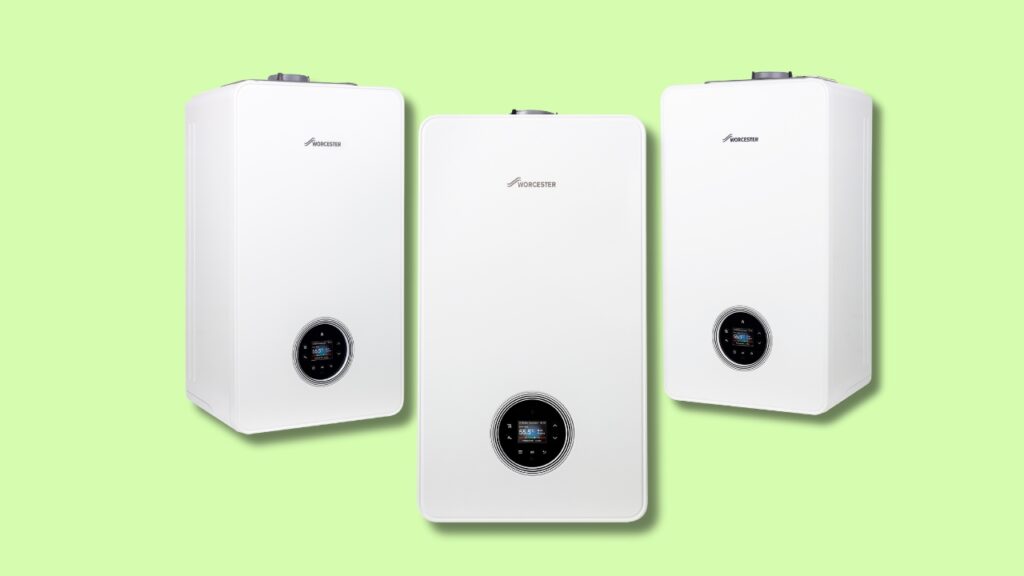
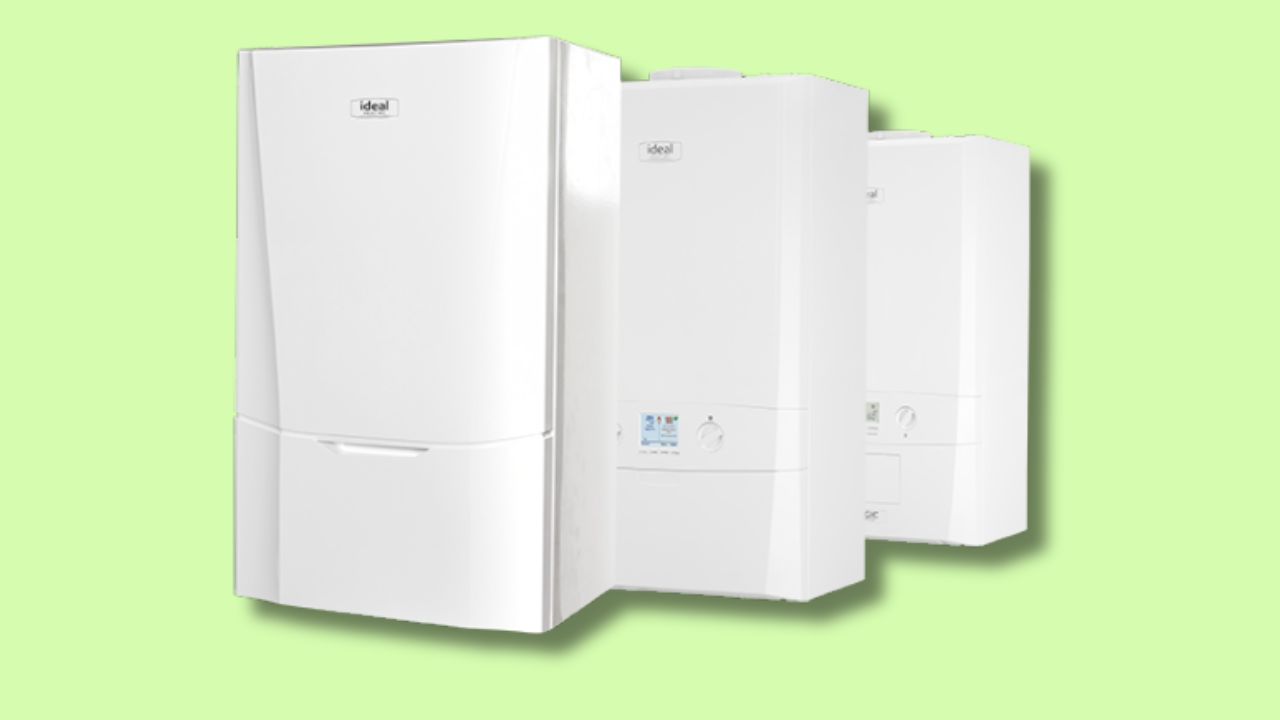
Ideal
Ideal is another UK brand offering a good balance of quality and affordability. Ideal boilers are known for their reliability and easy installation. Choose from an array of regular, combi and system boilers to suit your needs and budget.
Viessmann
Viessmann is a German manufacturer known for “designing living spaces for future generations”, ever since its conception in 1917. They offer various gas, electric and LPG boilers, including condensing boilers known for their fantastic efficiency.
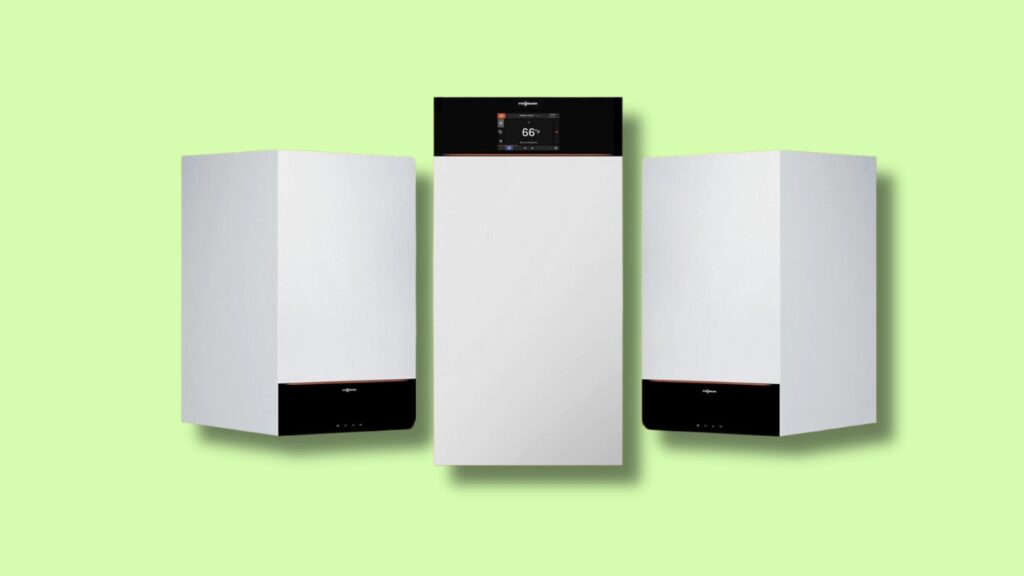
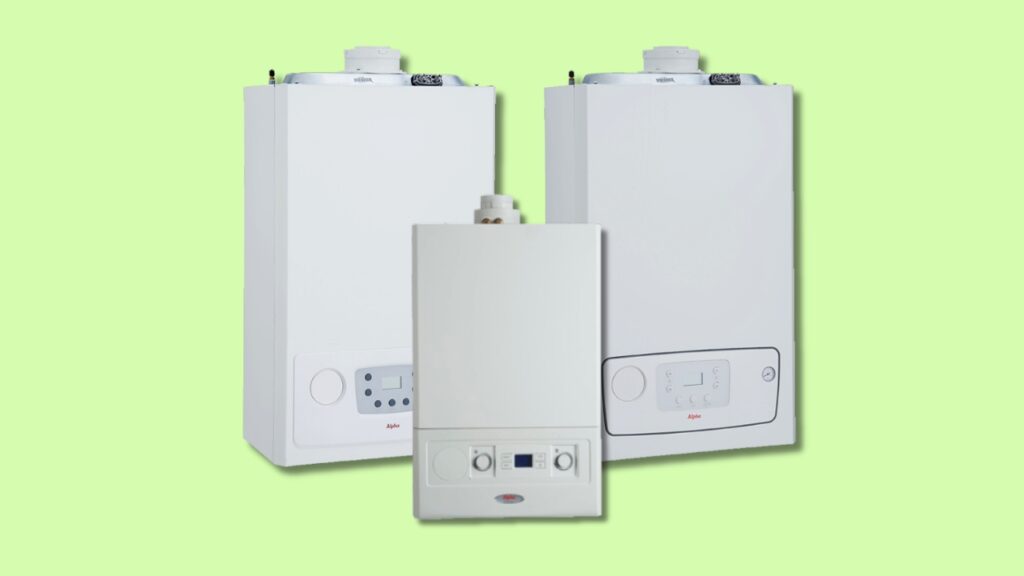
Alpha
Alpha boilers are known for their impressive performance with A-grade ErP ratings.
Vaillant
Valliant, another German company, is known for high-quality, efficient boilers. Valliant offers a wide range of combi, system and conventional boilers with ecoTEC models being the most popular.
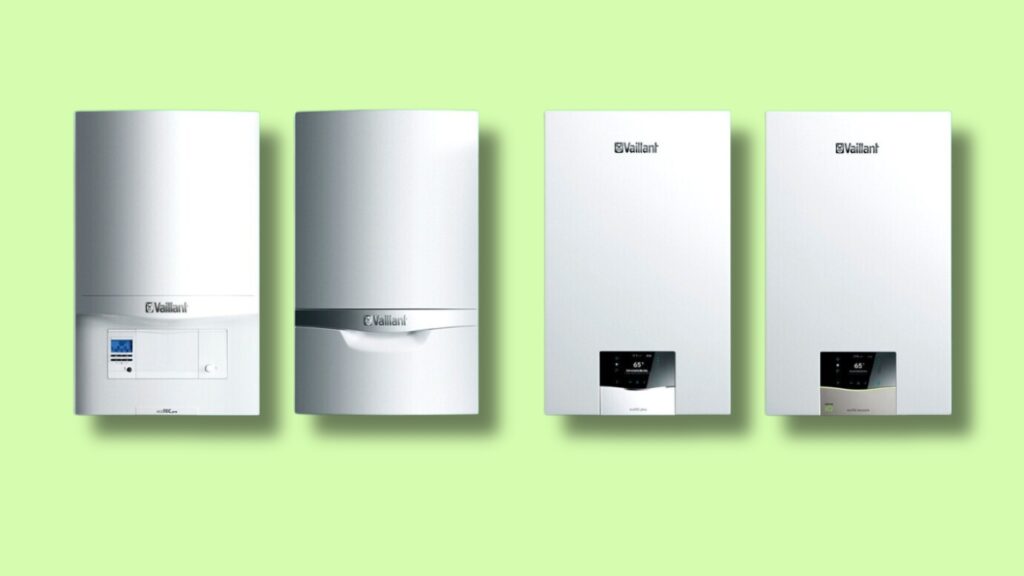
Why Choose Eco Happy?
With years of experience behind us, we’ve assisted thousands of businesses and homeowners nationwide. Our skilled teams are adept at installing boilers in both residential and commercial boilers and will guide you every step of the way.
Gas Safe registered
Eco Happy’s heat engineers are Gas Safe registered.
Fast response times
We pride ourselves on our quick turnaround times and speedy responses.
Professional and reliable
With years of experience, rest assured your boiler installation is in safe hands.
Installation of all boiler types
Whether you need gas, oil, LPG, electric, or biomass boilers installed, our proficient team handles them all.
Customer service
We continue our services long after the installation process is complete. From annual boiler services to after-sales calls, we are with you every step of the way.
Get Your New Boiler Installation Quote Today
Contact the experts at Eco Happy today if you’re ready to install a new boiler or need advice on which boiler is best for your home or business.
Fill in the quick, online quotation form with a few basic details and we’ll provide you with an upfront, fixed-price quote (with no hidden costs).
FAQs
Can I do my own boiler installation?
No, it is against the law to install your own boiler. Certified Gas Safe engineers, like Eco Happy, can only install gas boilers in the UK.
What is the perfect boiler for small homes?
A combi boiler is the best boiler for small homes with one to two bedrooms and one bathroom. The single unit is compact, making it easy to install in tight spaces like kitchen cabinets or utility cupboards. It supplies ample heating and hot water to meet the needs of small households (or offices).
Is an annual boiler service compulsory?
While there is no legal requirement that boilers must be serviced annually, most manufacturers require these annual services to avoid cancelling your warranty.
Who does new gas boiler installations in the UK?
Contact Eco Happy, the UK’s leading boiler installer when looking for fast, reliable and affordable boiler installations in the UK.
Areas We Service
England
Scotland
Wales
Northern Ireland





James Elston
Boiler Expert
James Elston is the top boiler replacement and heating expert at Eco Happy. He has over 20 years of experience in the industry, focusing on Gas Safe boiler installations and offering home-heating and energy-saving solutions to homeowners across the UK. From sourcing the most energy-efficient combi boiler to providing specialist heating advice, James ensures that Eco Happy maintains the highest standards and best customer service.